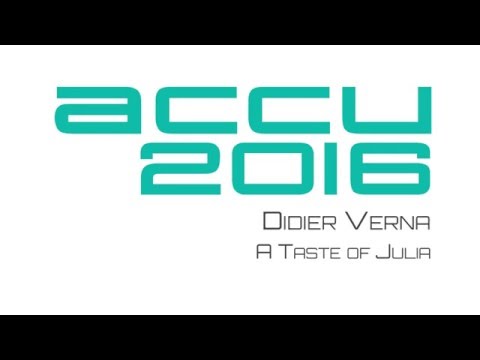By Didier Verna
Julia is a recent programming language developed at MIT and sold as a high level, high performance dynamic language for scientific computing. One of the co-authors of Julia has a Scheme background, and in fact, it appears that Julia borrows a lot from Scheme, Common Lisp and Dylan. This is to the point that Julia may even be considered as a new Lisp dialect. This is enough, already, to catch our attention, but there’s more. Julia also seems to benefit from modern optimization techniques for dynamic languages, notably through its LLVM based JIT compiler. In this talk, we will give a tour of the language’s most prominent features, with a slight focus on what makes it a Lisp, sometimes (not always) an even better one that the existing alternatives.












